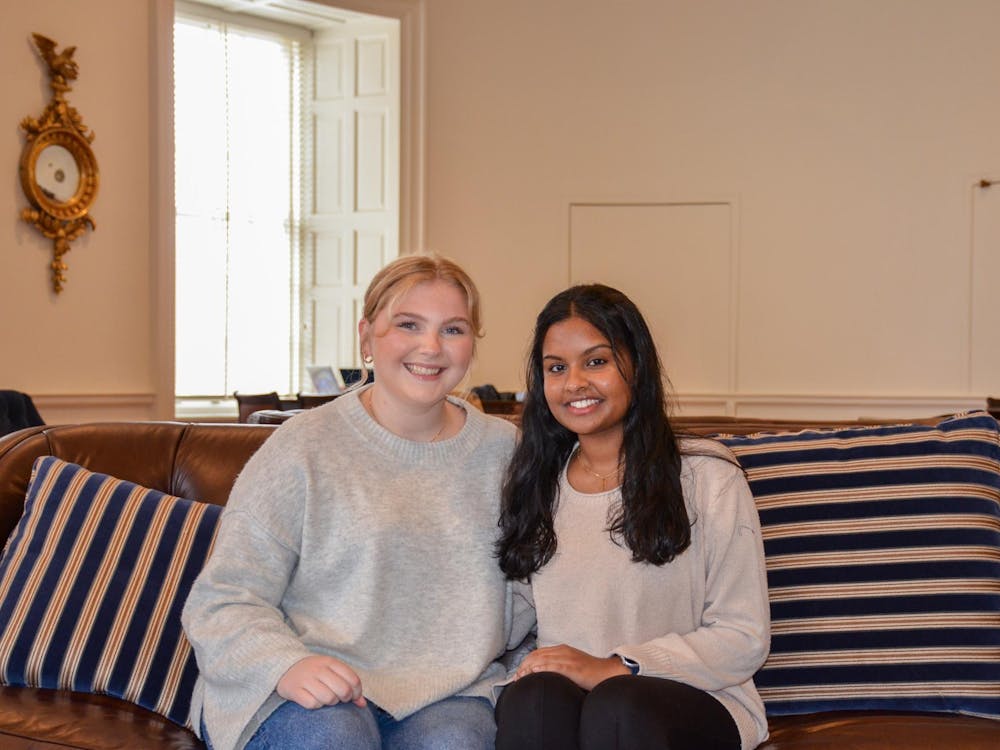Living exclusively among young adults, our perspective within the microcosm that is the University can at times be myopic. However involved students are with extracurriculars that look beyond the scope of the University, our day-to-day actions remain hopelessly disconnected from the norms that would otherwise dictate our behavior in the “outside world.”
With most things, we can get by with this. Living in ignorant bliss for a few years — while not desirable — is not entirely detrimental. Our inattention to sexual assault, though, is inexcusable.
Anyone who knows me can attest to the fact that I am infatuated with this University. I would not want to be contained in this metaphorical bubble with any other group of people. Still, I cannot help but become disenchanted when I attend events like the Take Back the Night vigil and hear story after story about the rather enormous presence of sexual assault surrounding us. Outside of that event, too, I have heard numerous accounts of sexual assault from friends, acquaintances and strangers. It both breaks my heart and it scares me — two feelings I hate to associate with a place I love so much.
It starts with the little things. Taken out of the context of the University, under what circumstances would it be acceptable for someone to approach another individual and grope him or her? It is definitely not something I have witnessed in the grocery store or while walking down the street. Spend more than five minutes in a party, though, and it becomes clear that this is not an unusual occurrence.
As I was discussing this with a friend, she mentioned different circumstances warrant different behavior — “You would act differently in class than you would at even an a capella concert,” she said. This is exactly what makes me uncomfortable. As my friend correctly observed, we have different socialized standards for how to behave in different situations. That means we have effectively normalized a culture of sexual misconduct within our University’s bounds.
It is this complacency I take issue with. Our bubble-induced standards are most problematic
in the arena of bystander intervention. When students who bear witness to potential acts of sexual misconduct are so numb to a behavior they cannot even recognize it as inappropriate, the whole community suffers. While there are many efforts on the perpetrator-victim front, the role of bystanders remains largely in the dark.
There have been efforts on this front — Dorothy Edwards’ speech to the first-years and the Handprint Project associated with Boys’ Bid Night — but I still feel there is an element missing. I believe wholeheartedly those who paid attention at the talk or signed the pledge are earnest in their intention to be active bystanders. If they are unable to pick up on the potential instances of sexual assault surrounding them, though, these efforts are in vain.
Through these efforts, we have preemptively addressed the “how” and vowed our support for the cause without fully understanding the “what.” If we do not know how to define sexual misconduct, then we do not know when to step in.
Something has to happen in order to bridge the disparity between our intentions and our actions. I concede, this is not an easy subject to discuss. I contend, however, the University needs more dialogue about sexual misconduct and what constitutes it — because the path to solving this complicated issue is long and arduous. The only way to conquer it is to walk alongside one another, talking the whole way.
Sumedha’s column runs biweekly Tuesdays. She can be reached at s.deshmukh@cavalierdaily.com.






